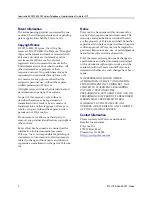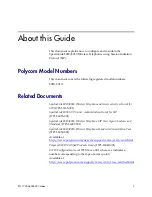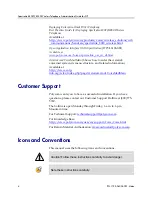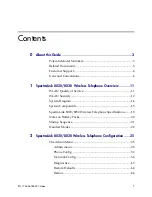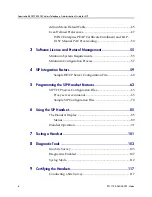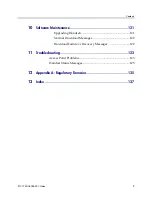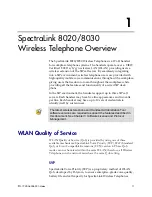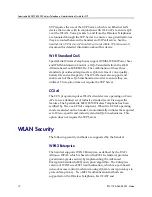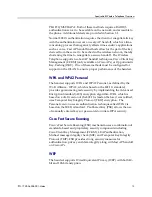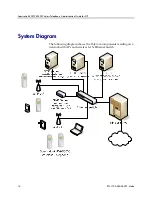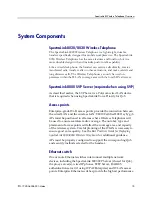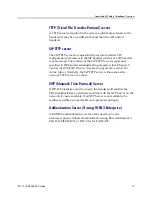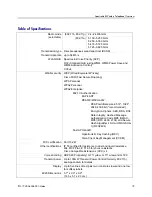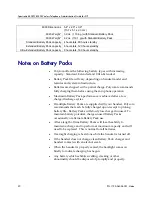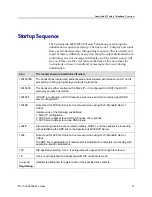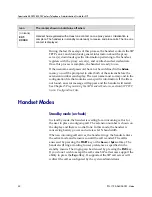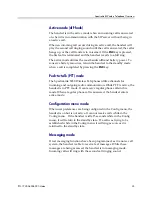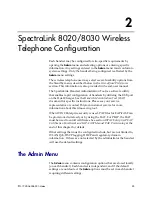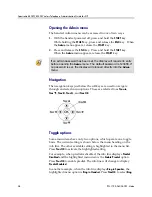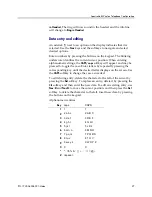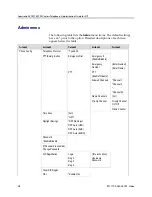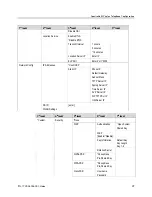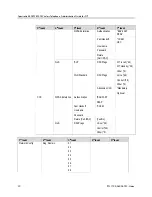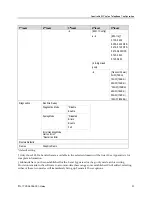
SpectraLink 8020/8030 Wireless Telephone: Administration Guide for SIP
16
PN: 1725-36038-001-H.doc
networks, which can handle combined voice and data traffic, and are
required when using the SpectraLink 8020/8030 Wireless Telephones.
Although a single Ethernet switch network is recommended, the
handsets and the SpectraLink 8000 SVP Server can operate in larger,
more complex networks, including networks with multiple Ethernet
switches, routers, VLANs and/or multiple subnets, as long as the SVP
Server and access points and handsets are on the same subnet.
However, in such networks, it is possible for the quality of service
(QoS) features of the SVP Server to be compromised, and
consequently voice quality may suffer. Any network that consists of
more than a single Ethernet switch should be thoroughly tested to
ensure any quality issues are addressed. See the
Best Practices Guide
for Deploying SpectraLink 8020/8030 Wireless Telephones
for additional
guidance.
SpectraLink 8020/8030 Wireless Telephones cannot roam with
uninterrupted service between subnets unless specific LAN
components are present. Certain AP/Ethernet switch combinations
establish a Layer-2 tunnel across subnets that enable the handsets to
roam. Without this capability, any call in progress will be dropped
when the user moves out of range and the handset must be power
cycled in order to resume functionality in the new subnet area.
Ensure that all your APs are attached to the same subnet for proper
operation. The handset can change subnets if DHCP is enabled and
the handset is powered off then back on when within range of APs on
the new subnet. Note that the wireless telephones cannot “roam”
across subnets, since they cannot change IP addresses while
operational.
SIP server
The SIP server is a component from a third-party vendor that
provides access to telephony services. The handsets can recognize up
to three distinct SIP servers in a single system.
The handsets can operate with SIP proxy servers such as SER (SIP
Extensible Router) or with SIP Back-to-Back User Agents (B2BUA) –
the most common form of SIP server for PBX-based systems. In this
case the IP address location services provided by the SIP server are
not available, so direct IP address dialing must be used.
The SIP proxy server connects to another device such as a PBX or
gateway and from there, other wired phones and the PSTN.

